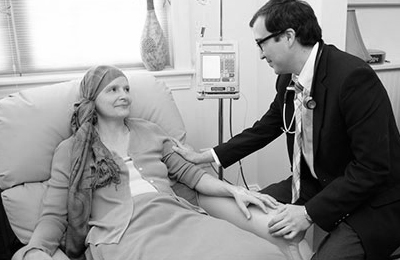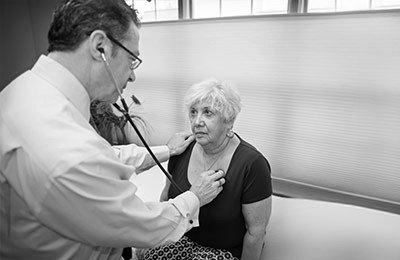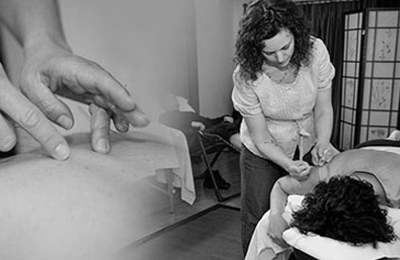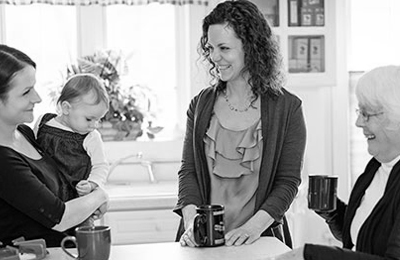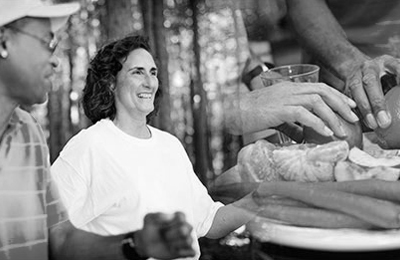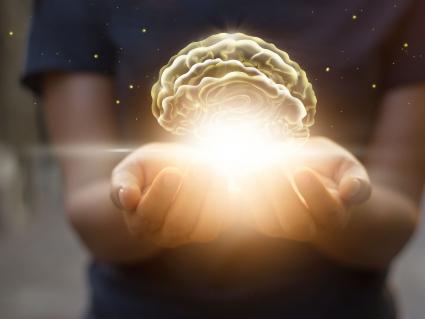Mental Health Counseling

At the Stram Center, we recognize that mental health is often the basis of your potential to navigate life’s challenges as well as to heal from physical illness. Understanding your full self, including traumas and difficulties you may have experienced, is often the first step to learn what your unique strategies are in the face of life’s difficulties. Quality healthcare should include support from professionals who understand how to fully listen to you and your needs. For Lyme and chronic illness patients specifically, we so often hear that their prior experiences in mainstream medicine included medical gaslighting; this can have long-lasting physical, psychological, and emotional affects that can influence a person’s ability to restore health. Through our collaborative model of care, our Licensed Mental Health Counselor and the practitioners at the Stram Center can help you develop the physical and socioemotional tools to achieve an optimal outcome in your overall wellness and improve your quality of life. We believe that mental health is integral to your physical health—we are here to help you embark on your mind, body, and spiritual healing journey.
What Does a Licensed Mental Health Counselor do?
A Licensed Mental Health Counselor (L.M.H.C.) supports you in your personal life by providing you the tools to address your struggles and triumphs in a positive, clarifying way. To become licensed to practice in their state, mental health counselors must complete a master’s program in counseling, which typically takes two years. As part of this program, students take part in supervised fieldwork. Our L.M.H.C will provide support and guidance that can help you identify triggers and cope with negative emotions. She will work with you to develop strategies that allow you to gain insight and self-awareness, in order to make meaningful behavioral changes that you can apply to help you take charge of your life.
Who is our LMHC? Read more about Danielle Stram.
Our LMHC, offers counseling in the following areas:
- Individual psychotherapy, adult and adolescents
- Group Therapy
- Trauma/PTSD
- Anxiety
- Depression
- Suicidal ideation and self-harm
- Grief and loss
- Self-esteem issues
- Relationship issues
- Mood and personality disorders
- Sexual/physical/emotional trauma
- Substance use
- Life transitions
Mental Health Counseling Modalities
At the Stram Center, our L.M.H.C will assess and treat your mental and emotional health disorders, relationships issues, and life transitions and challenges through various methods of psychotherapy. The modality our L.M.H.C is individualized, some of these methods include but are not limited to the following:
- Person Centered: The goals of this approach include tends to increase the client's self-esteem, learning abilities from making mistakes, trust in themselves, positive relationships, and idea of who they are. Clients should be able to express and experience their emotions better in real time as well.
- Feminist: The goal of this modality is to address the concerns of women, people of color; lesbian, gay, bisexual, transgender, and non-gender conforming individuals; people with special needs; immigrants; refugees; and more. Those who have experienced oppression may be able to find a treatment that can inspire social transformation in addition to addressing mental health concerns.
- Mindfulness-based (MBCT): This method is a type of psychotherapy that involves the combination of cognitive therapy, meditation, and the present-oriented, non-judgmental attitude called mindfulness. Mindfulness meditation teaches people to consciously pay attention to their thoughts and feelings through techniques and exercises.
- Psychodynamic: This therapy focuses on the psychological roots of emotional suffering. Its hallmarks are self-reflection and self-examination, and the use of the relationship between therapist and patient as a window into problematic relationship patterns in the patient's life.
- Cognitive Behavioral Therapy (CBT): This method is a form of psychological treatment that has been demonstrated to be effective for a range of problems including depression, anxiety disorders, alcohol and drug use problems, marital problems, eating disorders, and severe mental illness. In many studies, CBT has been demonstrated to be as effective as, or more effective than, other forms of psychological therapy or psychiatric medications.
- Strength Based Therapy: This modality is a type of positive psychotherapy and counseling that focuses more on your internal strengths and resourcefulness, and less on weaknesses, failures, and shortcomings. This focus sets up a positive mindset that helps you build on you best qualities, find your strengths, improve resilience and change worldview to one that is more positive
- Multicultural: This therapy addresses the concerns of those whose race, ethnicity, disability, or other social factor falls outside of the majority, and issues that arise such as oppression, racism, and marginalization.
- Group therapy: We offer group therapy, which is the involvement of multiple people in one session. This type of therapy is designed to target a specific problem, such as depression, eating disorder, panic disorder, social anxiety, chronic pain or substance use.
- Trauma/PTSD Focused: Trauma-Focused Therapy is a specific approach to therapy that recognizes and emphasizes understanding how the traumatic experience impacts a child's mental, behavioral, emotional, physical, and spiritual well-being.
- Relational: This approach can help individuals recognize the role relationships play in the shaping of daily experiences. This model may be beneficial to people seeking therapy for any number of reasons, but in particular to address long-term emotional distress, especially when distress occurs as a result of relational concerns.
Related Blog Posts

Supporting Lyme by Calming the Mind
One of the basic concepts of integrative, naturopathic, and Chinese medicine is that given the right conditions and support, the body has an inherent ability to regulate and heal. This can take a long time when something as noxious as Lyme disease and its co-infections have set in, but healing is possible and we are here to support you. Chinese medicine…Read the Post

Understanding Compassion
I came across a writing from renowned Buddhist monk Thich Nhat Hahn titled “Understanding”. In it he described a common position we may take with our friends, family, neighbors, and coworkers with regard to helping in the name of being loving or compassionate. Without understanding a person’s suffering and where they are coming from, we may overstep and transgress by assuming that...Read the Post

Building Resilience During Turbulent Times
The definition of resilience is the capacity to recover quickly from difficulties, a return to homeostasis. This year has taught us that our ability to persevere has been the most effective response to these challenging times. With the staggering numbers of economic and personal losses from the pandemic over the last nine months, I have had the honor to care for our community during one of the…Read the Post

Setting an Intention: Mental Health Tips
Simplicity is the antidote to complexity. In light of the experience of anxiety, depression and racing thoughts, simplicity helps the mind to gain clarity and settle down. A mistake that can be made while setting an intention is the assumption that you won’t be met with challenges. As is shown in the tai ji symbol, challenges are unavoidable.The tai ji symbol (yin/yang symbol)…Read the Post
Understanding and Managing Your Stress
Stress is the body and mind’s response to the demands of life. In a biological sense, stress can enhance survival (our reaction to meeting a bear in the woods, for example). In small amounts in everyday life, stress can be positive, such as when it helps you conquer a fear or provides extra endurance or motivation to complete a difficult task. Prolonged or intense stress however, can contribute…Read the Post

